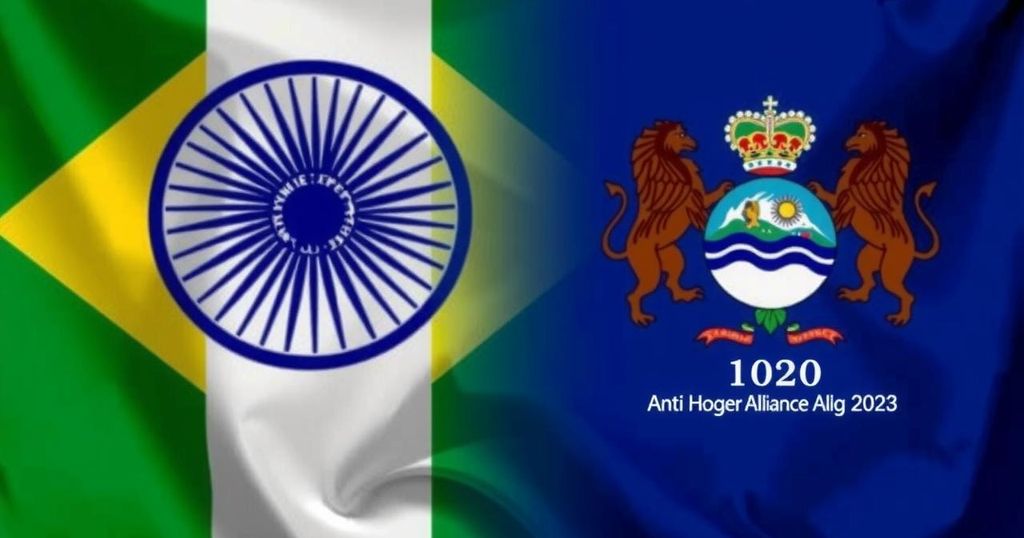Argentina did not sign the Global Alliance Against Hunger and Poverty at the G20 summit in Brazil, the only participating country to abstain. This move, attributed to President Javier Milei, strains relations between Argentina and Brazil, where President Lula champions the initiative aiming to eradicate hunger and reduce inequality by 2030.
Argentina has opted not to join a global anti-hunger initiative, set to be launched at the G20 summit in Rio, making it the sole G20 country to abstain. This decision, made by President Javier Milei, highlights a growing political divergence with Brazil, represented by its left-wing leader, President Luiz Inácio Lula da Silva. The initiative, known as the Global Alliance Against Hunger and Poverty, aims to eliminate hunger and poverty by 2030, while also addressing inequalities. Currently, 81 nations have signed onto this key initiative spearheaded by Brazil’s G20 presidency, with Argentina’s potential membership still under negotiation, as indicated by sources close to the Brazilian government. The relationship between Presidents Milei and Lula has been strained even before the former’s election, given Milei’s alliance with U.S. President-elect Donald Trump and his stance against multilateralism, advocating for strict austerity measures to combat Argentina’s inflation crisis.
The ongoing G20 summit, hosted by Brazil, is a critical platform for global dialogue on pressing issues, including hunger and poverty alleviation. The Global Alliance Against Hunger and Poverty represents a vital effort championed by President Lula, aiming for a significant reduction in these issues by 2030. The differing political ideologies of Argentina and Brazil under their current leadership burnish contrasting approaches to economic and social challenges, further complicating regional dynamics and cooperation.
In summary, Argentina’s refusal to engage with the Global Alliance Against Hunger and Poverty reflects deeper political divides with Brazil and underscores the unique challenges both countries face. President Milei’s commitment to austerity and skepticism of multilateral initiatives contrasts sharply with President Lula’s ambitions for international collaboration aimed at combating hunger and inequality. This decision may have implications for regional cooperation and dialogue in the broader context of G20 discussions.
Original Source: www.batimes.com.ar






